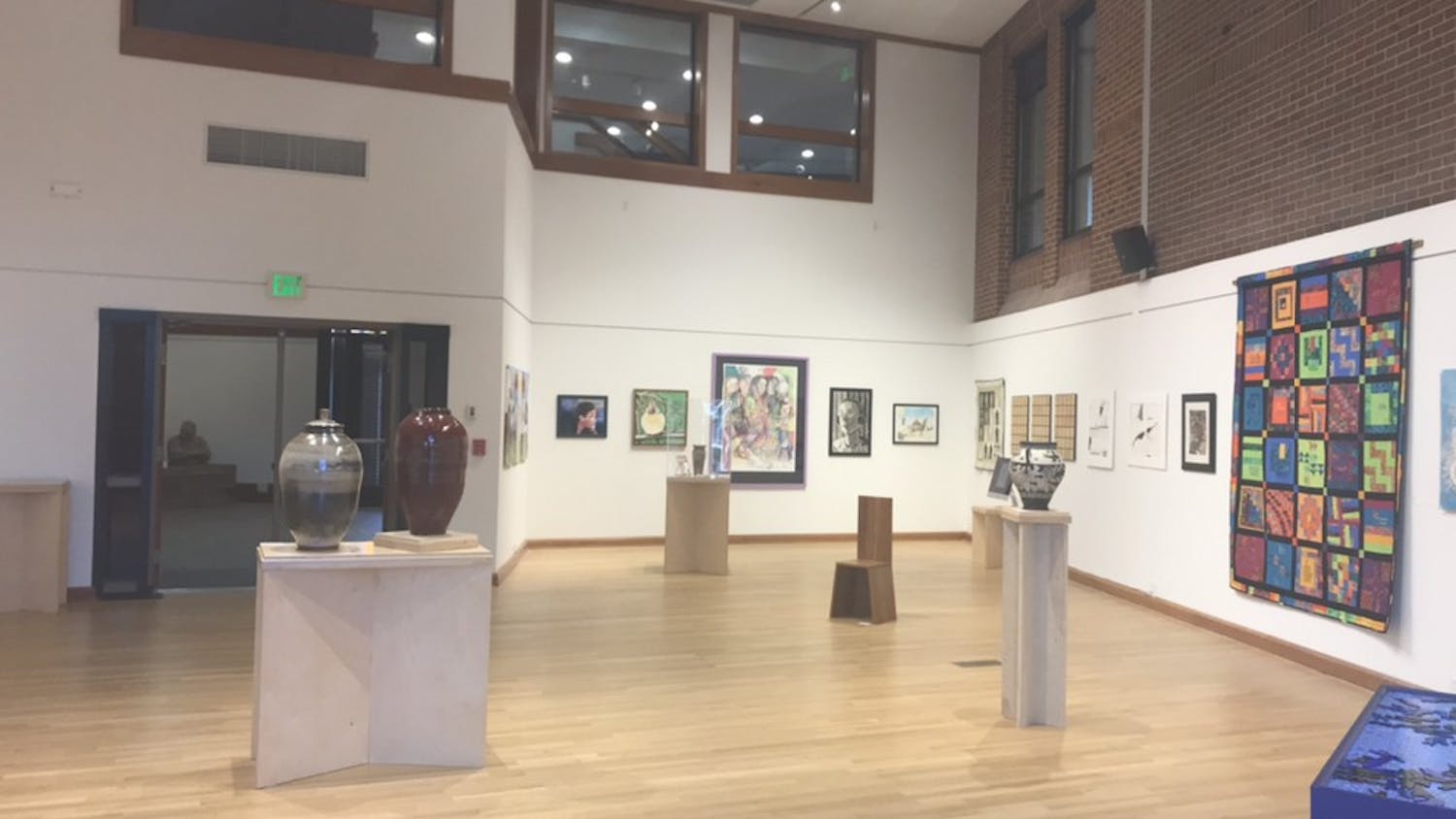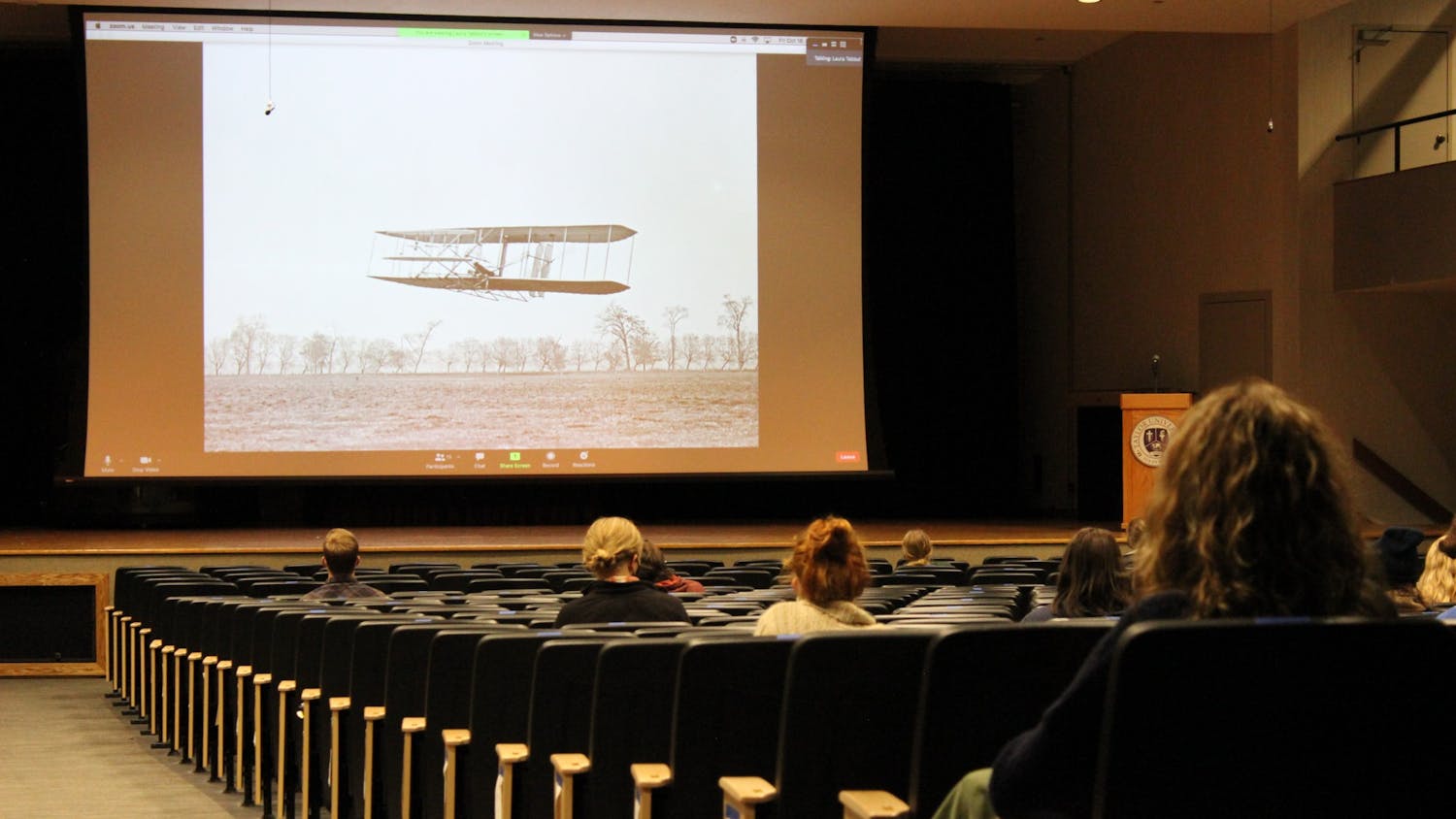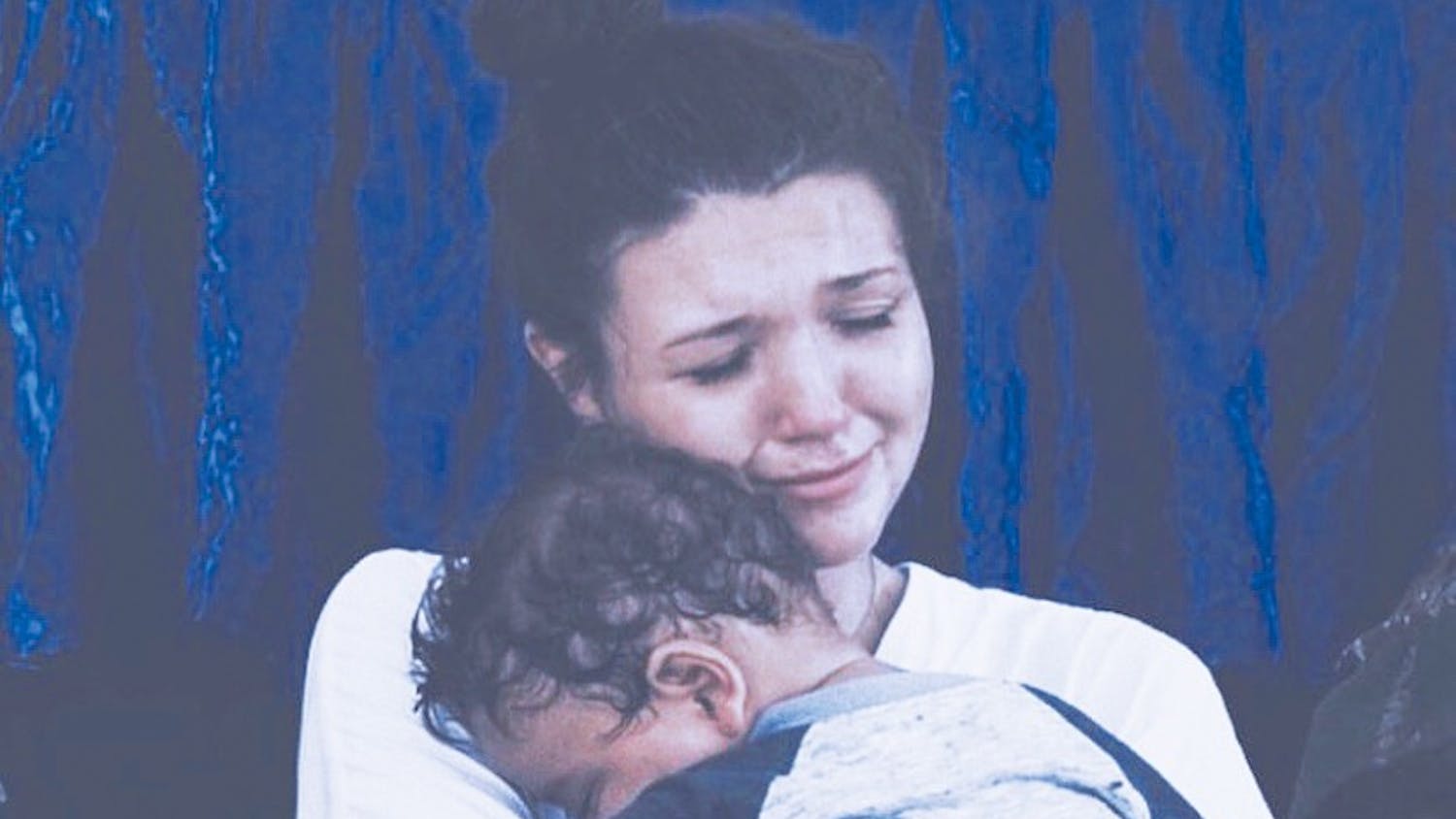The presentation taking place inside the Metcalf auditorium on a drizzly Oct. 22 wasn’t centered around Picasso and Michelangelo. Instead, it focused on U.S. military drones and failed currencies.
They’re not the average art topics, but then again, Kenneth Steinbach, whose “I Love Only You” is being featured in the Metcalf Gallery through Dec. 10, isn’t your average artist.
Assistant professor of art Jeremie Riggleman is responsible for overseeing the gallery here at Taylor. It is a task he has contributed to ever since he started at the university in 2017. He credits Steinbach as a mentor, and like many of the other art instructors, he is excited to have Steinbach’s work just down the hall for the next several weeks.
“It is sort of a glimpse at the outside world,” Riggleman said. “Being where we’re located, I think it’s important for us to see what’s happening in contemporary art, and so we try to bring that here (and) into Metcalf so students and the community are able to see what’s going on.”
Riggleman works closely with other department faculty to determine who receives an invite to showcase their art at the university.
“Ken has really strong work (and) many of us here in the department look up to what he’s doing,” Riggleman said. “It was an easy invitation to make.”
“I Love Only You” features prints that receive their inspiration from failed currencies throughout the course of history. Some of the prints display a cod fish, which is taken from a failed Norwegian currency. Others get their design from Confederate money. Currency has fascinated Steinbach for many years, and with cryptocurrencies and non-fungible tokens (NFTs) now garnering mainstream attention, he still finds himself devoting time to the subject.
“Far more currencies have collapsed (than ones) that are still in existence,” Steinbach said. “I think that, as one of the ideas in the work, that could be one of the ideas that people start to consider: Their relationship to these currencies or ways of thinking about these currencies that are a little bit more questioning, which I think is healthy for people who have a faith.”
Another topic that has always fascinated Steinbach is military-style drones capable of destroying targets at the press of a button.
Visitors who walk straight into the Metcalf Gallery will be greeted by “Under the Rose.” Using muslin fabric draped over bamboo and folded on the floor, Steinbach has formed the silhouette of a Predator drone. Unmanned aerial vehicles piqued his interest during the conflicts in the Middle East, especially with Iraq.
Steinbach showcases this piece to show the reality of the people enduring these conflicts.
“It’s very easy to sort of forget that real people are dying down there with the push of a button which is so clean,” Steinbach said. “We have to be careful not to mistake that distance for a certain kind of rightness.”
The laser-cut muslin fabric in “Under the Rose” contains thousands of patterns inspired by Islamic and Christian sources. According to Rachel Smith, a professor of art who has known Steinbach for close to two decades, it is his messages and materials that make the pieces unique.
“I think the thing that’s really distinctive about Ken’s work is that he has a really nuanced aesthetic ability where he uses materials in surprising ways that are beautiful in their subtlety, but where he’s actually probing subjects that are potentially polarizing or challenging,” Smith said. “And bringing those two things together is a really difficult thing to do, and yet, all of his work represents that sensitivity.”
During the de-installation of the exhibit, viewers are invited to take a print from “I Love Only You” home with them. Not only will the print serve as inspiration; Steinbach hopes that as the prints go out into the community, they also spark skepticism, questions and conversation. After all, along with failed currencies and Predator drones, those are a few of his favorite things.
Steinbach’s work will be displayed in the gallery until the de-installation takes place on Dec. 13.





